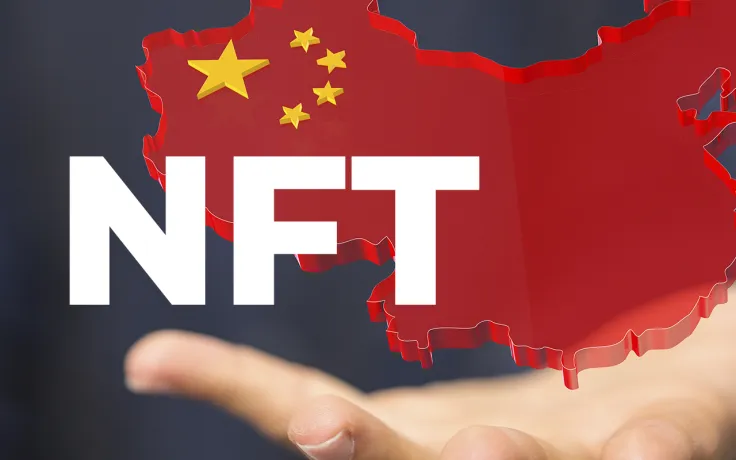
According to Shanghai Securities News, three major government associations under the People's Bank of China (PBOC) have begun an initiative to prevent financial risks related to the non-fungible token (NFT) space.
Aside from developing the industry of digitized art, it is believed that NFT can be used for speculation, money laundering and other illegal financial activities. Therefore, the associations have suggested some strict measures to keep the NFT market under control in order to protect consumers.
The association under the Central Bank of China requires a crackdown on the financial securitization of NFTs and does not use Bitcoin, Ethereum, USDT, etc. as tools for NFT transactions. https://t.co/KtEFHfbbUi?from=article-links
— Wu Blockchain (@WuBlockchain) April 13, 2022Strategy's Saylor Hints at Fresh Bitcoin Buy Amid Investor Ridicule Shiba Inu Buyers Step In, Peter Brandt Reveals Bitcoin Price Rebound Target, Ripple Exec Confirms XRP as Priority — Top Weekly Crypto News Morning Crypto Report: XRP in -77% Breakdown Danger, Massive 100,000 ETH Binance Dump by Satoshi-Era Bitcoin Whale, Cardano's Forgotten +25% February Wins Leaked Email to Epstein Framed XRP Supporters as Enemy, Ex-Ripple CTO Says
China again calls for regulating the NFT space
The three aforementioned organizations are China Internet Finance Association, China Banking Association and China Securities Association. They have suggested that NFT platforms in China start introducing several initiatives. They include adhering to integrity and innovation in order to support the real economy, as well as making sure that the value of NFTs is fully supported, "guiding consumers to consume rationally" and preventing selling NFTs at inflated prices.
Aside from that, the initiatives include protecting intellectual property rights for commodities that back non-fungible tokens, as well as to support "genuine digital cultural and creative works." Also, all information related to NFT platforms and sales should be disclosed accurately and in full so as to protect consumers and their right to fair trade.
Preventing financial risks related to NFTs
In order to protect consumers, the associations regulated by the PBOC have suggested several measures. They suggest banning the inclusion of securities, credit, insurance or any financial assets, including precious metals, into underlying commodities for NFTs. Local authorities have to ensure that the aforementioned assets are not traded as NFTs in disguised form.
NFTs must also not be a disguised form of ICO or any other form of fundraising via token issuance.
Banning BTC, ETH, USDT for NFT payments
Another part of this initiative is to ban centralized transactions with NFTs. This includes centralized bidding, electronic matching, the use of market makers, anon transactions, standardized contract transactions or any other services for transactions with NFTs.
Three major cryptocurrencies are not recommended to be used for NFT pricing or settlement: Bitcoin, Ethereum and Tether's stablecoin, USDT.
In addition, local Chinese authorities are required to demand a full verification of the names of sellers and buyers of NFTs, to collect and store KYC data and to actively cooperate with any governmental bodies that seek to prevent or investigate money laundering activities.

 Alex Dovbnya
Alex Dovbnya Denys Serhiichuk
Denys Serhiichuk Tomiwabold Olajide
Tomiwabold Olajide